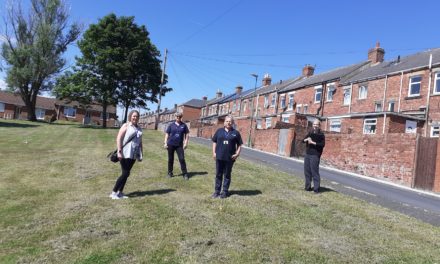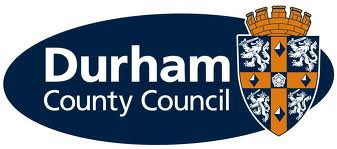Councillors will be asked to declare an ecological emergency in County Durham as part of plans to do more to stop the decline of wildlife and natural habitats.
In March 2019, Durham County Council declared a climate emergency and quickly prepared an emergency response plan which continues to evolve and develop as it focuses on its carbon commitment targets. The authority is now exploring whether to take a similar approach to biodiversity.
At a meeting of the council’s Cabinet in October 2021, it was decided that its overview and scrutiny committee would examine evidence relating to the decline of natural habitats and species in County Durham.
County Durham has a rich tapestry of habitats – from its upland peatland and moorland, meadows and wetlands, to the magnesian limestone plateau with its species-rich pasture and Heritage Coast. This represents not only a valuable resource for biodiversity, and a store for carbon, but an asset for recreation and wellbeing.
The Environment and Sustainable Communities Overview and Scrutiny Committee’s (ECOSC) review report to go before Cabinet on Wednesday 6 April shows overwhelming evidence of global and national decline in habitats and species. While the local data included is less extensive, it strongly mirrors national and global trends relating to the condition of sites of special scientific interest, local wildlife sites, habitats and a range of species from fish, birds, mammals and insects.
Councillors will this month consider the declaration of an ecological emergency and also the establishment of an initial action plan to improve habitats and wildlife in County Durham, especially on council land.
Cllr Mark Wilkes, the council’s Cabinet member for neighbourhoods and climate change, said: “Our thanks go to the scrutiny committee which has carried out extensive research during the past six months into the issues facing County Durham’s wildlife and habitats.
“We have already, in this year’s new budget, built in significant resources to ramp up our work to improve the natural environment. It is clear that action needs to be taken to do more to halt the decline in natural habitat, biodiversity and species in our county for the benefit of future generations.
“Although we already have 31 designated local nature reserves and an additional 61 sites identified as important for local wildlife, we recognise that our plans need to go beyond the managed sites to consider what more can be done through different services and key relationships with education, awareness and volunteering.”
The Cabinet report notes that new investments announced as part of the MTFP from 2022/23 to 2025/26 will provide further impetus for this work. This will be through the appointment of two nature reserve officers as well as staff to promote education and awareness, volunteer investment and the appointment of a local nature recovery strategy officer.
The council will also be asked to produce a Local Nature Recovery Strategy (LNRS) setting out biodiversity priorities for the strategy area and a local habitat map, informed by an assessment of opportunities for enhancement or recovery of the area’s habitats and species.
A number of initiatives are already ongoing in County Durham to promote nature recovery, including the restoration of 12 miles of unique coast with 160 hectares of grassland habitat managed for nature conservation.
The Biodiversity Enhancement Project is enhancing council-owned greenspaces with 41 hectares converted to species-rich grassland, while tree and woodland cover is being widened, focusing on expansion of tree and scrub cover. During the past 20 years, planting of more than one million miles of hedgerow has been led by the council.
Cllr Wilkes added: “As a council we have committed more investment than ever before in this year’s budget towards achieving the best possible ecological improvements for our county. We are also investing significantly in improving access to our wonderful countryside for residents and visitors.”
Cabinet meets at County Hall on Wednesday 6 April.









